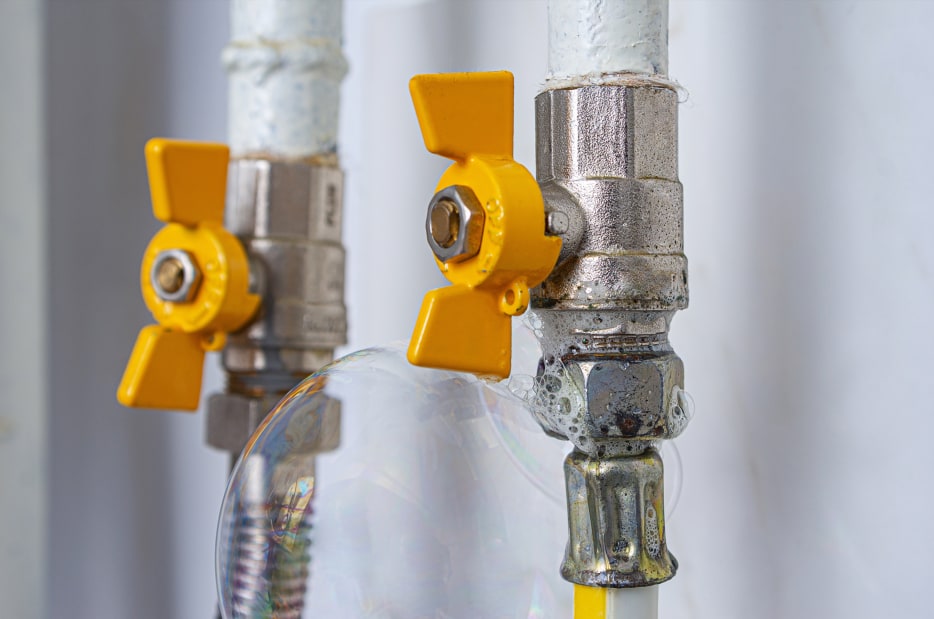If you’re like many Americans, your home may use natural gas to power your heat as well as appliances such as your stove, according to the U.S. Energy Information Administration (EIA). Like electricity, natural gas is an everyday source of power, and it’s important to keep safety concerns in mind.
When a gas leak occurs, it can be dangerous—even deadly. Leaks can lead to fires and explosions and harm people and buildings. Here’s what you need to know so that you can recognize a potential gas leak and respond quickly.
Signs of a Gas Leak
Your senses will help you know if there’s a gas leak—here’s what you might smell, see, and hear.
1. It will smell like rotten eggs.
Natural gas is odorless, but an odorant called mercaptan is added to it, which makes it smell like rotten eggs or sulfur, to make it easier to detect. If you smell that type of odor, know that it’s a warning sign of leaking gas.
If you often have a stuffy nose or you have a poor sense of smell, consider purchasing and installing a methane detector in your home to help detect when natural gas is present. You can find them online and at your local hardware store. (These devices are not a replacement for carbon monoxide and fire/smoke detectors.)
2. There may be some strange sights.
There are some visual cues that a gas leak is occurring. Be wary if you spot:
- Standing water or a puddle that’s bubbling
- Dirt that is blowing
- Dead or dying vegetation (without an alternate explanation) or discolored soil near a pipeline
These are all signs of a potential gas leak.
3. You hear hissing.
Finally, there’s often something to hear during a gas leak: hissing or a roaring sound. During a gas leak, you may hear this from a pipeline, appliance, or gas meter. Hissing indicates a small leak, while roaring indicates a bigger one.

What to Do if You Suspect a Gas Leak
If you suspect there may be a gas leak, don’t pause to confirm, investigate, or attempt a DIY solution by turning off the gas valve.
Instead, immediately leave your home—or the area outside where you suspect there’s a leak—and, from a distance, call 911 and then your gas company. But remember: This is an emergency situation, so leave your home first before taking next steps; do not try to investigate yourself.
As you leave your home, be extra cautious: Everyday actions—like using your landline, flicking a light switch, turning on a flashlight, using your garage door opener, or ringing a doorbell—are all enough to cause a spark, which in turn could ignite the gas.
How to Prevent a Gas Leak
If you’ll be digging on your property, alert your gas company beforehand so they can mark the utility lines on your property. That way, you can feel confident you won’t hit them as part of your project. In some states, such as Utah, this step is required.
If you hit a pipe while digging, make sure to leave the area immediately, and follow the steps listed above. Treat this like an emergency, even if you do not detect any of the gas leak signs listed above.
